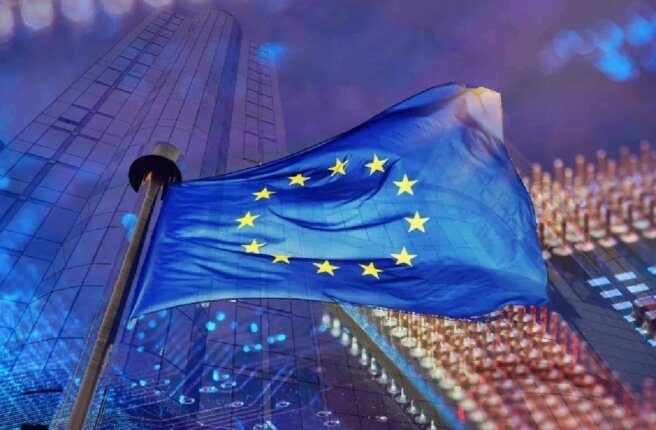When I first built a website back in 1998, the internet was a vast, open frontier. It felt boundless and decentralized – a place where someone in Berlin could publish content that might be seen moments later by a person in Boston or Belgrade. The web was a tapestry of interlinked communities, driven by creativity, connection, and free expression. Fast forward to today, and this vision seems a distant memory.
The internet has become dominated by a handful of massive technology companies that not only command a majority of user attention but have created insular digital ecosystems that prioritize profit and control over openness and innovation.
Platforms like Meta’s Facebook and Instagram, and Elon Musk’s X (formerly Twitter), function less as open networks and more as walled gardens. Their underlying algorithms incentivize keeping users locked inside their platforms, discouraging outbound links and external interaction.
This model traps billions of users in echo chambers, fueling endless scrolling and often contributing to polarization and misinformation.
Such control goes beyond mere inconvenience. These tech giants wield enormous influence over the digital infrastructure that shapes our lives-from the news we consume to the social conversations we engage in. The dominance of a few private companies, primarily headquartered in the United States, undermines digital sovereignty in regions like Europe. The continent depends on platforms that extract vast economic and data value while contributing relatively little in taxes or regulatory compliance. Europe has been clear about its concerns over Big Tech’s power.
Policymakers have enacted regulations like the Digital Services Act (DSA) and the Digital Markets Act (DMA) to curb anti-competitive behavior and enforce greater transparency and accountability. Yet these steps, while necessary, are reactive and insufficient to restore true digital autonomy.
The threat became particularly evident during the 2020 US presidential election and subsequent political events. Elon Musk’s acquisition of Twitter and the platform’s weaponization in US politics underlined how a single tech billionaire could influence democratic processes across the Atlantic. Musk has openly threatened to interfere in European elections as well, further raising alarms about foreign influence via social media platforms.
This situation mirrors Europe’s strategic dependency on foreign suppliers for critical technologies like semiconductors and cloud services. Just as Europe is striving to build its own semiconductor manufacturing and cloud infrastructure to ensure economic resilience and security, the same urgency applies to social media platforms. Continuing to rely on American Big Tech for public digital infrastructure compromises Europe’s ability to protect democratic discourse, data privacy, and innovation.
A common refrain among European policymakers is that there simply aren’t viable homegrown social media alternatives to Big Tech platforms. This belief has discouraged investment and innovation in European digital ecosystems, perpetuating the dominance of foreign platforms.
However, this narrative overlooks important developments over the past few years: the rise of decentralized, open-protocol-based social media platforms. Unlike traditional platforms, these emerging networks prioritize user control, interoperability, and innovation by design.
A leading example is the AT Protocol, developed as the foundation of Bluesky-a rapidly growing social media platform with nearly 36 million users. Bluesky and other platforms built on AT Protocol offer a fundamentally different model. Users own their data and have control over the algorithms that curate their feeds. Importantly, the AT Protocol enables interoperability: people can move seamlessly between different platforms while keeping their followers and content intact, breaking the “walled garden” model of Big Tech.
This innovation has already inspired Europe-based projects such as SkyFeed and Graysky, which leverage the AT Protocol to build alternative social media experiences free from corporate gatekeeping.
Beyond technical innovation, these decentralized platforms embrace pluralism. By enabling multiple interoperable social media providers to coexist and compete, they dismantle monopolistic power structures. This pluralistic ecosystem fosters diversity, innovation, and user empowerment-values that align with European democratic ideals and digital sovereignty.
Initiatives like the Free Our Feeds campaign are working to ensure that the infrastructure underlying these new platforms remains governed in the public interest, rather than controlled by private monopolies. Meanwhile, groups like Eurosky, composed of European technologists, are developing tools such as content moderation systems aligned with EU laws to support a healthy and scalable social ecosystem.
The time for Europe to act decisively is now. Social media is not just entertainment; it is a core part of public discourse, news distribution, and political engagement. Designating open social networking frameworks like the AT Protocol as critical digital infrastructure would signal a strong commitment to safeguarding democracy, promoting economic value creation, and securing data sovereignty.
By investing in open-source, interoperable social media platforms, Europe can ensure that its citizens control the algorithms and infrastructure that influence their online experience. This would create a more democratic digital environment, counter foreign manipulation, and stimulate a vibrant local tech ecosystem that generates jobs and innovation.
Europe’s leadership could have ripple effects far beyond its borders. Countries outside the EU, grappling with Big Tech dominance and seeking digital independence, could adopt these open social media standards. This would help build a more equitable, decentralized global digital ecosystem-one that resists monopolistic control and fosters innovation worldwide.
The internet was born as a web of interlinked communities and ideas, not siloed platforms optimized for endless scrolling and data extraction. By fostering a social media ecosystem built on open protocols, Europe can return the internet to its founding principles of openness, pluralism, and user empowerment.
Achieving this vision requires political will and investment. Europe’s leaders must move beyond skepticism and excuses, committing resources to build and scale open social media infrastructure. Only then can the continent reclaim its digital sovereignty, protect democratic discourse, and lead the world toward a healthier digital future.



